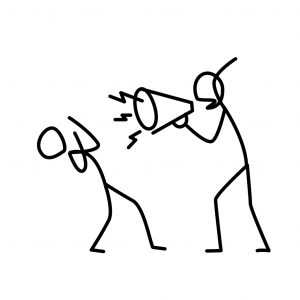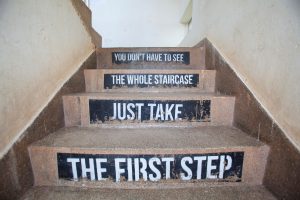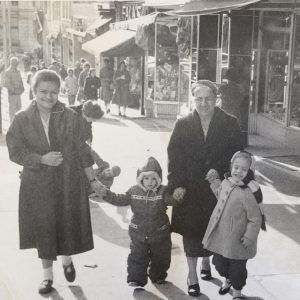A post entitled, Embracing Uncertainty, suggested an alternative description of the practices often recommended to support resilience.
It has become clear that the language helping professionals use, is often one of the most significant obstacles to supporting significant life and career change.
So, if you’ve embraced mindfulness, a daily meditation practice or have already found your way into a supportive recovery community – this post is not for you.
If you’ve explored mindfulness, worked with a trainer, have made multiple attempts to adopted a healthier and more balanced lifestyle, yet find it is difficult or impossible to maintain – this post is for you.
If you’re struggling with periods of malaise, outright depression, anxiety or physical symptoms which might be stress related, or if you have a sense that your work/home life could be better – this post is for you.
And if you’re living well, but have a niggling feeling that something is missing – keep reading. It can’t hurt.
Personal Change Management
Change management has been formally studied and implemented in business and industry for over half a century. In the early days it was characterized by a top-down exercise in defining goals and strategies; in recent decades the focus has moved toward ‘stakeholder-driven’ change.
This shift is important to note. Industry has determined that sustainable change and innovation follows bottom-up management by individuals, team leaders and ‘change champions’.
 Our personal top-down change management system appears to need updating as well. New Year’s Resolutions are a great example:
Our personal top-down change management system appears to need updating as well. New Year’s Resolutions are a great example:
- I’m going on a diet
- I’m looking for a new job
- I’m training for a marathon
Good in theory, but arguably top-down. There’s a ring of “the boss says I should” to it.
Personal Change Champion
What would bottom-up personal goal setting look like? How different would it be when you, the ‘stakeholder’, is in charge?
- Would you decide to diet, or would ask yourself what pain you are medicating by overeating or not exercising?
Ask: What feelings are you shovelling down or numbing with sugar, carbs, drink or drugs?
- Should you get a new job, or could you confront the stressors at this one?
Ask: Are you bored? Is it the right field for you? Do you ask for what you need? Do you bring your best self to the workplace – or simply punch a clock?
- Planning to train for your first or fifth marathon?
Ask: Are you doing it to benefit from the exercise, discipline and camaraderie – or are you running away from something or for the sense of accomplishment? “Accomplishing” seems more like work than self-care.
Setting achievable goals and ultimately moving from knowing what you don’t want to what you do want, begins with more than a few tough questions.
It requires us to fine tune or re-calibrate our ‘receivers’. Specific obstacles that have undermined us in the past, become apparent when we learn to listen in a whole new way.
Fine Tuning Receivers
Bandwidth. It’s a perfect metaphor for our attention span and focus. It’s not limitless. Which station are you tuned into? Favourite programme on 88.5? you can hear it on 88.6 or 88.4 – but through some static. In re-calibrating our receivers, it’s the static we’re out to eliminate; the noise characterised by that judging voice and negative self-talk that reinforces the message: why bother?

The Method
Take one small action every day on your own behalf. The tools outlined below are designed to be adopted into your daily life and routine.
The process is fundamentally the same as the “DMAIC” model used for Change Management in industry – Define, Measure, Analyse, Improve and Control.
If you’re in “I’ll do it myself” mode, we’re inviting you to embrace one small change at a time!
The Tools
These are modified slightly from their source for introductory purposes, links to the original work follow.
Morning Pages
The best case I can make for adopting this practice is laid out in journalist Oliver Burkeman’s 2014 Guardian article.
Perhaps I shouldn’t have been surprised at how powerful Morning Pages proved, from day one, at calming anxieties, producing insights and resolving dilemmas. After all, the psychological benefits of externalising thoughts via journalling are well-established. And that bleary-eyed morning time has been shown to be associated with more creative thinking: with the brain’s inhibitory processes still weak, “A-ha!” moments come more readily.
Julia Cameron, who devised the practice, calls it “meditation for Westerners”. Absent our habit of embracing stillness or silence, three pages written in those early moments of wakefulness between dreams and consciousness, we can achieve the same effect. In her words –
“They are a trail that we follow into our own interior…”
After nearly two decades of doing them, I can attest that the days I write them go far better than the days I do not.
Simply put they are three hand written pages of whatever comes to mind – think of it as a stream of un-consciousness. Some mornings they flow, other mornings they look like a petty list of gripes, a to-do list for the day or a silly unreadable scrawl. They are meant to be private and not shared. They are rarely even re-read.
There is no wrong way to do them. Put your inner critic to the side, take pen to paper and focus on the fact that “done is better than perfect”. Perhaps you can consider them “mourning pages” –
“…a farewell to life as you knew it, and an introduction to life as it’s going to be”
Still skeptical? For more in the author’s own words you can listen to a brief description on her site .
It may just be simpler to try it!
Walking
Introduced in Cameron’s subsequent books, with this tool, she reminds us that
“…walking is a time-honored spiritual tradition. Native Americans walk on vision quests, Aborigines go on walkabouts…Walking brings a welcome sense of connection…optimism and ….a sense of health and well-being.”
Make it a point to take a walk of at least 20 minutes, twice a week.
“Walking is a luxury, an escape from our frantic pace. When we walk, we experience the richness of the world”.
Time Out
Relax. It’s doable – it’s only five minutes!
Once in the morning and once at night – sit quietly for five minutes. Check in with yourself. It’s an opportunity “for self-appraisal and self-approval”.
Set a timer, make an appointment, silence your inner critic and listen. Simply ask yourself, “How am I feeling and why?”
Play Date
Yes, I know Cameron calls it an “Artist Date“, but it is the single most resisted tool, usually while clients are emphatically insisting they are not “artists”. We’re taking liberty in describing it, as even Cameron calls it “assigned play”.
And to make the case for calling it a “Play Date”, consider this:
“What you begin to see when there’s major play deprivation in an otherwise competent adult is that they’re not much fun to be around,” he says. “You begin to see that the perseverance and joy in work is lessened and that life is much more laborious.”
That from Dr. Stuart Brown, founder of the U.S. based National Institute for Play.
Once a week, imagine “what sounds like fun?” – then allow yourself some time alone to try it. Focus on the word “date”.
Cameron’s genius is never subtle – she is inviting you to “woo” yourself into doing something fun.
“Artist Dates fire up the imagination. They spark whimsy. They encourage play.”
And they need not be adventurous – a hour or two at a gallery, take in a film or a play, head off to an antique show, gaming convention or go berry picking. Just a few hours away, on our own and without a phone or technology is good for re-charging.
Techniques
The process is simple, but not necessarily easy. So choose one of the tools above and try it. If it serves you well, make a habit of it and add another. If you are struggling with one, add a different one and come back to it. And don’t go it alone!
The method, tools and techniques described are outlined in a series of books on creativity, resilience, perseverance, writing, abundance, money and starting over. Published over the last 3 decades and grounded in Julia Cameron’s own recovery, the techniques have evolved over the years, been embraced by millions worldwide and reflect much of the mindfulness based interventions for emotional well being.
You can find all of them from her first, The Artist’s Way to her most recent It’s Never Too Late to Begin Again online and in most bookshops.
Her intention was that small groups would come together into “creative clusters” and work through one chapter a week for 12 weeks at a time. There is information available on forming a cluster, joining a facilitated group, or individual coaching here.
For inspiration you can follow the hashtags #morningpages #artistdate on Twitter.
Thank you to our friends at CoasteeringNI and Firewalking Ireland for challenging us to play and push outside our comfort zone.
“The Memoir is a weekly exercise that builds upon itself. You will divide your life into sections; as a rule of thumb, divide your age by twelve, and this is the number of years you will cover each week…you will trigger vivid memories, discover lost dreams, and find unexpected healing and clarity...
 Try a baby step toward the process. I encourage you to start gathering photos from your childhood and adolescence – pictures that catapult you back to moments in different places and times.
Try a baby step toward the process. I encourage you to start gathering photos from your childhood and adolescence – pictures that catapult you back to moments in different places and times. Our personal top-down change management system appears to need updating as well. New Year’s Resolutions are a great example:
Our personal top-down change management system appears to need updating as well. New Year’s Resolutions are a great example:











